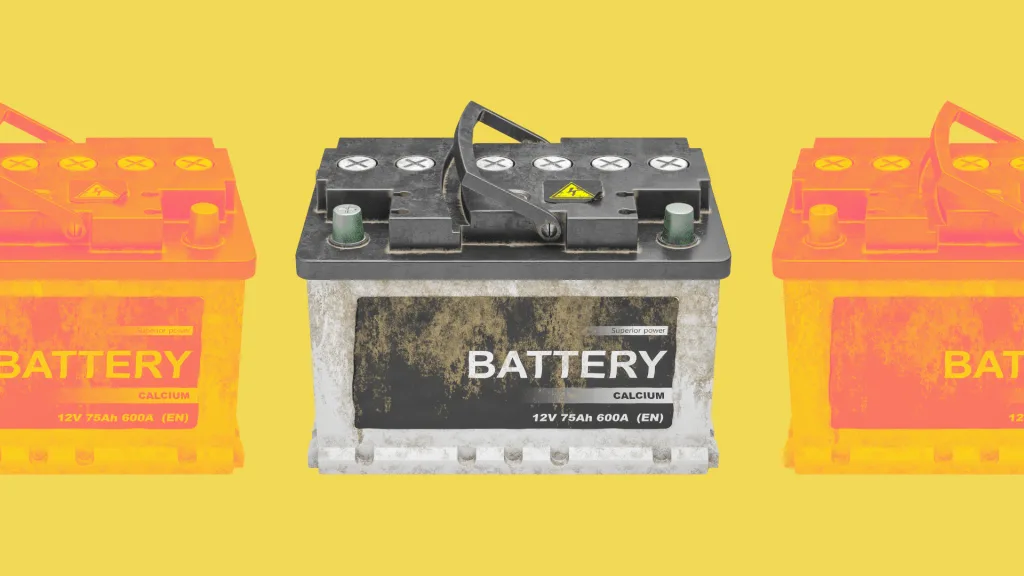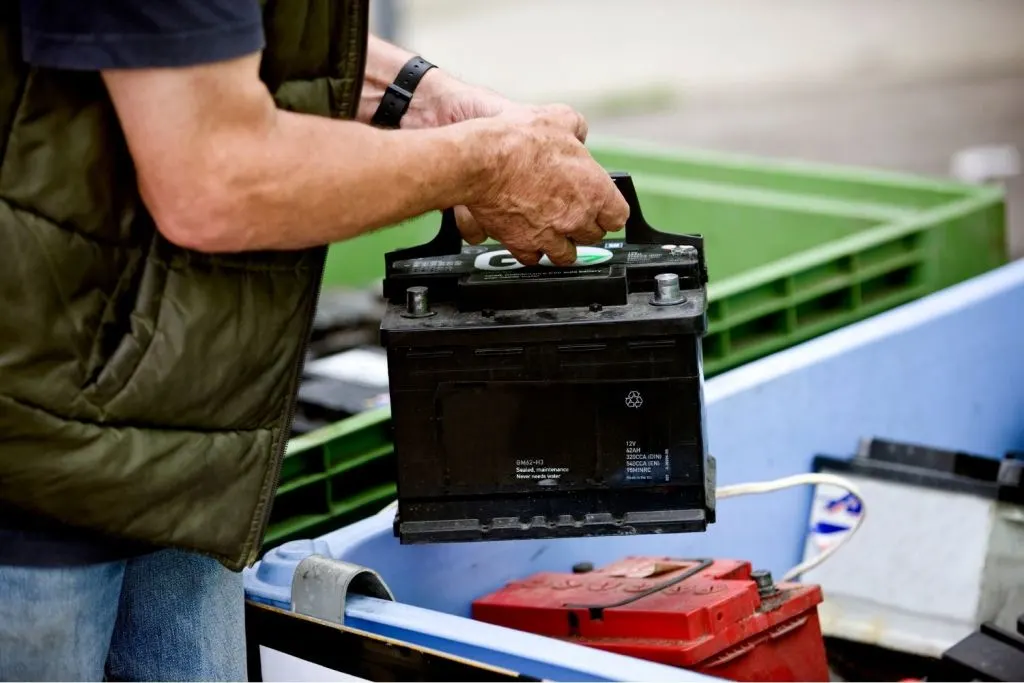How to Completely Destroy Your RV Battery
If you want to go off-grid, you need your RV battery. However, RVers often ruin their batteries without even realizing it.
Destroying your RV battery means spending more money and not having power when you need it.
Let’s look at how you can destroy your RV battery.
What Is a Lead-Acid RV Battery?
Lead-acid batteries were the first rechargeable batteries. They offer UPS (uninterrupted power supply), power storage, lighting, and ignition power. A lead-acid battery uses positive and negative plates immersed in a sulfuric acid electrolyte to create a chemical reaction.
This reaction generates positive ions, which make a positive charge.
Many RVs roll off the lot with at least one lead-acid battery in them. These batteries do the job for most campers, who spend most of their time in campgrounds. However, if you’re planning to camp off-grid relatively often, you may want to upgrade.
If you’re not careful while using your RV battery, you can cause permanent damage.

How to Destroy a Lead-Acid RV Battery (We Don’t Recommend It!)
Ruining a lead-acid RV battery is easier than you might think. Let’s look at some ways it can happen.
Discharge It Fully or Undercharge Your RV Battery
Discharging lead-acid batteries more than 50% is not good for the battery or your wallet. Discharging one of these batteries below 50% capacity can cause permanent damage. This lack of capacity means that you’ll only have access to half of your total battery bank.
Undercharging your RV batteries can be equally destructive. Undercharging a battery means not allowing the battery to return to 100% capacity. Doing this one time may not be a big deal, but when undercharging becomes a habit, you’ll quickly destroy your battery.
In addition, repetitive undercharging allows lead sulfate to form on the battery plates. The more lead sulfate that develops, the shorter the life expectancy of a lead-acid battery.

Let It Sit out in Freezing Temperatures
When temperatures drop below freezing, the electrolyte in the battery can freeze. When liquids freeze, they expand, which can cause cracking and leaks.
Fully charged lead-acid batteries can withstand temperatures as low as -80 degrees Fahrenheit. However, a partially discharged lead-acid battery begins to freeze at around 20 degrees Fahrenheit.
Never Maintain the Battery
Your RV battery will require routine maintenance. This maintenance isn’t difficult or time-consuming, but it’s essential for the longevity of your battery.
Check the electrolyte levels often and fill up your battery with distilled water to cover the plates.
Overcharge Your RV Battery
Undercharging is terrible, but so is overcharging. When you overcharge your RV battery, you can corrode the positive battery plates. In addition, the battery uses more water.
You could even overheat the battery by overcharging.
How Long Do Lead-Acid Batteries Last?
You can expect three to five years from a typical lead-acid battery. Some batteries last for 12 or more years. Make sure you follow the maintenance schedule and operating conditions to increase the battery’s longevity.
Is There a Better Alternative?
Lithium batteries are a huge improvement when it comes to RV batteries. These batteries are generally half the weight but twice the power of lead-acid batteries. This can make for a massive weight reduction when creating a large battery bank.
A lithium battery also provides 80% depth of discharge, compared to 50% from a lead-acid battery. This extended discharge level may not sound like a tremendous difference, but it’s massive over the life of the batteries. As a result, you’ll have more usable power without having to recharge as often.
Lithium batteries can also charge faster. This means less reliance on solar panels, generators, or other power sources to recharge your battery bank.
It’s Almost Too Easy to Destroy Your RV Battery
Unfortunately, destroying your lead-acid battery isn’t all that hard. All you have to do to save it is give it minimal attention, ignore routine maintenance, and inappropriately charge and discharge it.
Have you ever ruined a battery one of these ways?
Discover the Best Free Camping Across the USA
To be honest with you, we hate paying for camping. There are so many free campsites in America (with complete privacy).
You should give it a try!
As a matter of fact, these free campsites are yours. Every time you pay federal taxes, you’re contributing to these lands.
Become a FREE CAMPING INSIDER and join the 100,000 campers who love to score the best site!
We’ll send you the 50 Best Free Campsites in the USA (one per state). Access the list by submitting your email below:
[…] We love how it concurrently displays both the current amp hours as well as the percentage of remaining battery so we can quickly see how much energy we’ve used or, more importantly, how much energy is left before we risk damaging our battery bank. […]
[…] We love the way it concurrently shows each the present amp hours in addition to the proportion of remaining battery so we will rapidly see how a lot vitality we’ve used or, extra importantly, how a lot vitality is left earlier than we threat damaging our battery financial institution. […]
[…] We love the way it concurrently shows each the present amp hours in addition to the share of remaining battery so we are able to rapidly see how a lot power we’ve used or, extra importantly, how a lot power is left earlier than we danger damaging our battery financial institution. […]
[…] We love how it concurrently displays both the current amp hours as well as the percentage of remaining battery so we can quickly see how much energy we’ve used or, more importantly, how much energy is left before we risk damaging our battery bank. […]
[…] We love how it concurrently displays both the current amp hours as well as the percentage of remaining battery so we can quickly see how much energy we’ve used or, more importantly, how much energy is left before we risk damaging our battery bank. […]